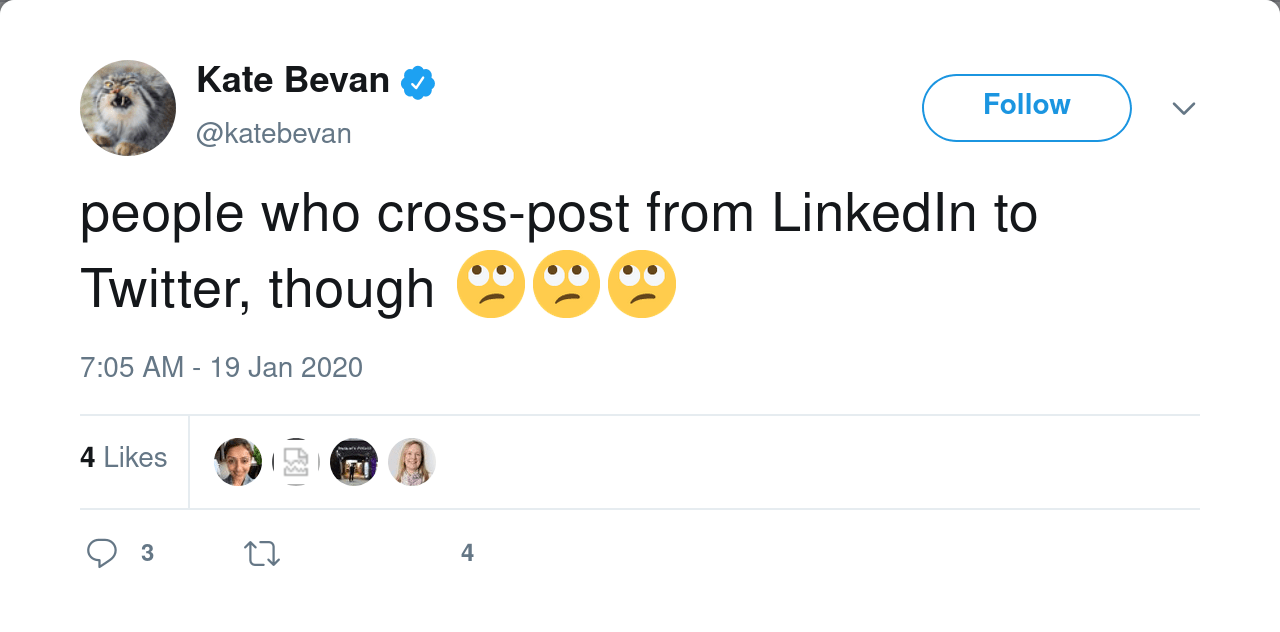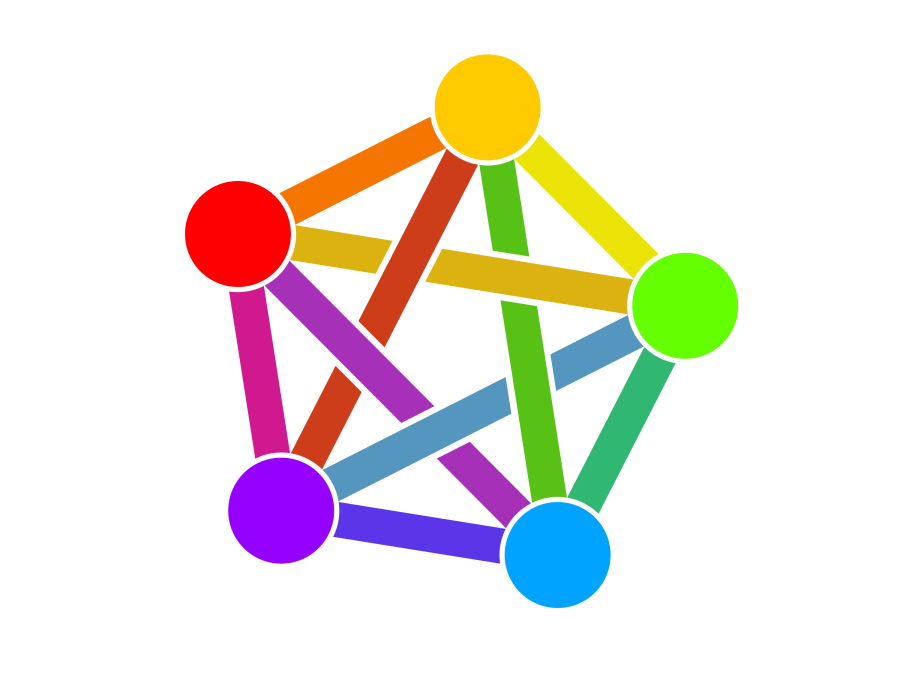How I'd redesign Twitter (and why it won't work)
Way back when Blackberry was the smartphone, my team at Vodafone obsessed over the idea of the "Unified Inbox".
"What if," the marketing chaps said, "you could see all your notifications in one place!"
Imagine a single inbox where your MySpace friend requests mingled with your Email. And your Facebook and Google Buzz notifications were in the same list.
It was a lovely idea. And users all proclaimed that was what they wanted. But users lie. And good ideas fail when they come into contact with reality.
People like silos. And they are fine with rapid context switching. And, it turns out, they're happy to learn how to use a dozen different apps.
So we now have Twitter, Instagram, Facebook, TikTok, Pokemon, Untappd etc all living in their own little silos. Occasionally cross-contaminating pollinating.
In light of Twitter's talk about turning itself into a protocol rather than an app, I thought I'd take a stab at how I would redesign Twitter. This is based only on my user needs. It is insular and not collaborative.
Here is a three-stage way I'd improve Twitter - and any social network. Then I'll discuss why it won't work.
1. Will the Real Slim Shady Please Stand Up?
Imagine you want to follow Clark Kent - ace reporter at The Daily Planet newspaper. On Twitter you have to work out if he's @CK1234 or @ClarkKent_1 or @UpUpAndAway. Does he have a verified tick? Is that a parody account? Is that Clark from Kent, England?
How about if The Daily Planet ran its own federated Twitter server? You just need to follow @Clark@DailyPlanet.info
His content gets syndicated into your feed - so you're not checking yet-another-network - and you're assured you're following a legitimate account.
Similarly @CustomerHelp@hsbc.uk is more likely to be the real customer service provided by your bank.
As an individual, you might choose to run your own Twitter server - just like you run your own blog. Or you might save yourself some hassle and join a communal server - just like you use WordPress.com
2. Channels
I love Clark Kent's off-beat look at the down-town arts scene - but I hate his biased reporting on Superman. Suppose Clark publishes multiple channels - Superman, Arts, Sport, Personal, Keto, etc.
He posts his dieting tips on #Keto (how does he keep in shape?) and his personal rants about the lack of phone-booths on #Personal.
I could choose to follow his "all" channel, or mute his #Superman channel, or only follow his #Arts channel.
He is in control of what he publishes, and I am in control of what I choose to see.
Google+
This is what G+ nearly got right. It let you put people in "Circles" and then choose what to show them. As I said at the time, this is backwards. Clark doesn't know what you're interested in.
Private Channels
Perhaps Clark wants to create some private channels. He has one called #JusticeLeague (WTF?) but he only lets certain people follow it.
This is similar to how I use Facebook. I only have close friends and family on there, and don't post publicly. Yes, I'm aware anyone them could leak my pics to the press, but that's no different to any form of communication. This is light-touch privacy.
3. A Local Twitter For Local People
Channels aren't the only solution to this though.
Local Twitter servers are free to set their own policies. Consider Untappd - a beer-based social network. I can post all my beer-realated musings on there. If you don't care about that, don't syndicate that facet of my personality.
Syndication and Federation are two-way streets. Clark Kent wants to interact on a local Twitter server specific to Metropolis. He also wants to be on a Photos-of-Krypton server.
Clark could choose to have two separate accounts. One where he discusses police brutality in the city, another completely unconnected one for photos of a distant planet. Or, does he want one primary account?
As a strict teetotaler, Clark blacklists all posts from Untappd and other alcohol-based networks.
Why this is doomed to failure.
Laziness. Humans are intrinsically lazy. That's why we invent so many labour-saving devices. Our laziness will capsize this effort in several important ways.
Organisations don't want to run a social network. Would The Daily Planet really set up a Twitter server for its reporters? Maybe - but they'd probably outsource it to a big central provider in the same way they've outsourced their blog to WordPress.
Individuals aren't going to bother doing this - other than a few strange nerds like you and me. So they'll all gravitate to a few big providers.
Those large providers would coalesce and we'd end up with one big social network again.
Humans are too lazy to verify things. Is that Tweet about broccoli causing cancer from a reporter at DailyPlanet.info or DaiIyPlanett.biz? Will users be able to identify trustworthy content any better?
Most people are too lazy to curate their feeds. I have a friend who tweets about the local Cricket Team. I couldn't give a shit about cricket, and wish I could filter out that part of her personality. If she only thought of me and my selfish needs when Tweeting, she'd have the grace to tag every post with #Cricket - then I could mute.
What happens when Clark leaves the Daily Planet to write for LexCorp's blog? Does he lose all his followers? With this proposal, a social network becomes more like email. Would their need to be a mechanism for forwarding follow requests?
Cross-Posting from multiple accounts gets confusing. I automatically syndicate my blog, beer, Instagram, and FourSquare through to Twitter. Should I do it the other way round? Where do people follow me? What's a hub? Where am I?
Even while writing this proposal, I got confused between channels and servers and communities and interactions. Will people bother to learn a new way of socialising? Or will everything just be dumped on the main feed without any curation?
Your Thoughts?
Ignore the technical aspects - for now - I'd like to know whether you think this is the sort of social-media future you'd like to participate in?

 Naming things is hard - DNS for the Federated Web
Naming things is hard - DNS for the Federated Web
Dave Cridland says:
Marcus Downing says: